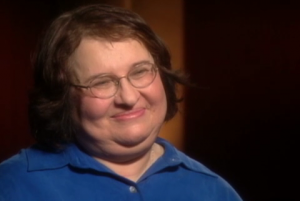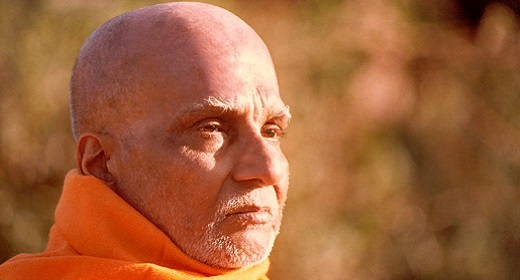There’s only one way to save your sanity in this speeded-up, lunatic world. Patience, says Sharon Salzberg. by Sharon Salzberg: One autumn I traveled to a bookstore in western Massachusetts to hear Stephen Batchelor, a Buddhist scholar, speak about his recently published book. As the evening went on, I found myself distracted by a demonstration making its way down the street toward us. Clear shouts rang out: “What do we want?” The chanted response came through only as “mumble mumble mumble.” I tried to go back to listening to Stephen’s lecture, but the mumbles were soon followed by a yell: “When do we want it?” And then a roar: “Now! Now! Now!”
by Sharon Salzberg: One autumn I traveled to a bookstore in western Massachusetts to hear Stephen Batchelor, a Buddhist scholar, speak about his recently published book. As the evening went on, I found myself distracted by a demonstration making its way down the street toward us. Clear shouts rang out: “What do we want?” The chanted response came through only as “mumble mumble mumble.” I tried to go back to listening to Stephen’s lecture, but the mumbles were soon followed by a yell: “When do we want it?” And then a roar: “Now! Now! Now!”
No matter how close the demonstrators came, the object of all that passion, that unyielding demand, remained a mystery. But each insistent cry of “Now!” crackled in the air as though shooting off sparks.
In some ways, I find the idea of calling out “now” beautiful. As a child facing the trauma of my mother’s death when I was 9, and my father’s mental illness when I was 11, I was often met by a wall of silence from adults, a postponement of any overt grief to a time when it might be more manageable. Most of us have had a well-meaning friend address our freshly broken hearts with “You’ll see things differently later. You’ll feel better in a while.” Whatever their intentions, that “later” can seem like a callous judgment that our present understanding is inadequate. A “now” erupting from within us would, in many cases, feel wildly satisfying.
Our willingness to insist on “now” honors our conviction that we have a right to be happy, to be safe, to be heard. Our “now” may recognize that others deserve an end to abuse or oppression. Many situations of loss, exploitation, or injustice are deplorable, and our heart’s demand for a better world is expressed in that “now.”
But there’s also something beautiful and deeply wise in being aware of the rhythms of life, the rhythms of nature. All of us know the mind-set that says our desires must be realized immediately. It’s easy to forget that, no matter what we’d prefer, dreams come true one step at a time. A journey isn’t just a vacancy between one place and the next but is worth paying attention to for its own sake. To be tyrannized by time, with its pressures of anticipation, expectation, comparison, and judgment, will not make our goals any easier to accomplish.
When my teaching colleague Joseph Goldstein was a child, he had a garden in which he grew carrots. He was so excited when the first green fluffy shoots came out of the soil that he pulled them up to look at the carrots that were growing and to help them along. We needn’t be in a hurry to reap the results of our efforts faster than the world can bestow them. Being alive means doing the best we can and then letting nature take its course. We plant a seed, nurture it, water it, and let it be. Knowing there’s a bigger picture than what we see in front of us, even if it isn’t perfectly clear, allows us to be more peaceful, to learn as things develop.
If we can be quieter, more in the moment with what is actually happening, a world of perception opens up for us based on where we are, not on where we one day hope to be. “Nobody sees a flower, really; it is so small,” said artist Georgia O’Keeffe. “We haven’t time, and to see takes time, like to have a friend takes time.” If we learn to take a little more time and be more fully aware of just where we are, we might see many new flowers and have many more friends.
One way of describing an ability to hold our convictions without drawing premature conclusions, feeling automatically defeated, or losing sight of what goodness life might be offering us today is the old-fashioned virtue patience. Despite the common misconception, having patience doesn’t mean making a pact with the devil of denial, ignoring our emotions and aspirations. It means being wholeheartedly engaged in the process that’s unfolding, rather than yanking up our carrots, ripping open a budding flower, demanding a caterpillar hurry up and get that chrysalis stage over with.
True patience isn’t gritting one’s teeth and saying, “I’ll bear with this for another five minutes because I’m sure it will be over by then and something better will come along.” Patience isn’t dour, and it isn’t unhappy. It’s a steady strength that we apply to each experience we face. If the situation calls for action, we must take it – patience doesn’t mean inertia or complacence. Instead, it gives us a courageous dedication to the long haul, along with the willingness to connect with the multilayered truth of what is right here.
Are those of us not naturally blessed with patience doomed to yell at our children or our forgetful parents, litter our office floors with disemboweled computer parts (or at least threaten to), or berate ourselves each time we fail to live up to our own expectations? Or can we cultivate a new way of responding?
Anytime we’re waiting – for the checkout person to ring us up, for the doctor’s office to call, for a friend who has hurt us to apologize – we can remember we’re alive right now. We can be determined to use this moment as a vehicle for paying attention, for growing, for opening.
Whenever we’re pushing against what is, as though if we tried hard enough we could force the tempo of change, we can take a breath. Whatever our vision for how things should be in the future, we can make sure we do the very next thing we need to do today. And whenever we’re in a fury of impatient resentment because our companion is walking too slowly or the mail came too late or we’re being ignored or we can’t concentrate or we can’t name what we want – or any of the countless everyday things we find hard, we can remind ourselves of what is good right now. Then, as we work to redress what is wrong, the belligerence, agitation, and frustration will drain out of our “now,” and the word can become a declaration of purpose and strength, supported by the gentle, developing power of patience.







































